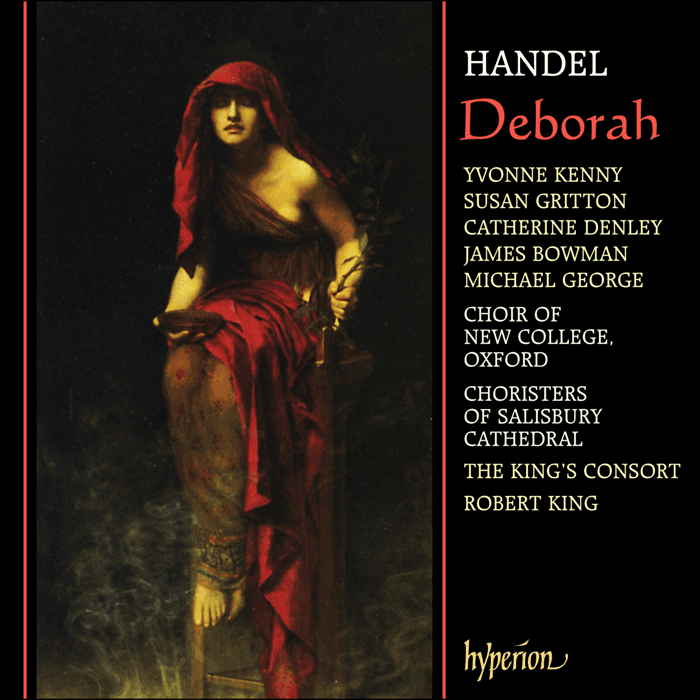Handel: Deborah
New College Choir Oxford, The King's Consort, Robert King (conductor)
CDA66841/2
The year 1733 did not start well for Handel. The popularity of his operas in London had been dwindling for the last few seasons and, despite attempts to reawaken public interest, his takings at the box office were increasingly poor. Even revivals of previously successful operas failed to excite the general public. Handel had ignored the growing body of opinion which favoured the writing of operas in English, rather than in Italian, and his stubbornness was now generating reaction against him. Rival enterprises sprang up, and The English Opera, led by Thomas Arne, father of the composer, proved to be a particular threat: their success was depressingly felt in Handel’s bank account. Ironically, the opposition’s most successful production was a pirate version in May 1732 of Handel’s Acis and Galatea: the composer reacted swiftly to the challenge with a bilingual re-working combining the same Masque with his 1708 setting of Aci, Galatea e Polifemo and turned his attention towards his new Italian opera season, steadfastly refusing to receive the message that the public wanted opera with English words. In November 1732 he revived Alessandro with a cast headed by Senesino, but, despite a full theatre and the attendance of the King on the first night, the run attracted ‘a thin house’ for its remaining five performances. The score of Orlando, in many ways his greatest dramatic work, was already finished when he received a letter from his former partner and supporter Aaron Hill (who had decided that speculative ventures in foreign trade were a safer bet than running an opera house), begging that Handel:
"… deliver us from our Italian bondage; and demonstrate, that English is soft enough for Opera, when compos’d by poets, who know how to distinguish the sweetness of our tongue from the strength of it, where the last is less necessary … Such an improvement must, at once, be lasting and profitable, to a very great degree; and would, infallibly, attract an universal regard, and encouragement. (December 5, 1732)."

